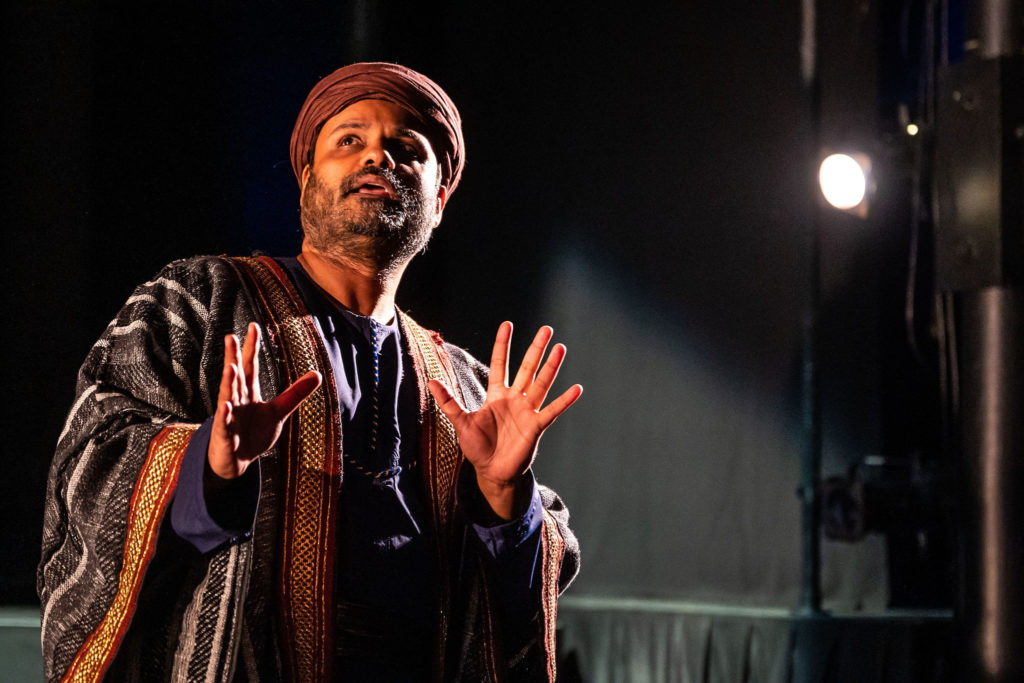Closed after a very short (three-day) streamed run at Theatre Passe Muraille. A Theatre Passe Muraille and lemonTree creations digital co-production. Closed as of April 23, 2022.
Written and choreographed by Indrit Kasapi
Directed by Cole Alvis
Set by Andjelija Djuric
Lighting by Melissa Joakim
Sound by Maddie Bautista
Composition, cinematography and editing by Kejd Kuqo
Co-composer for Mrs. Noka Song
Costumes by Rachel Forbes
Cast: Nicole Joy-Fraser
Indrit Kasapi
Kat Khan
Christopher Manousos
Riley Sims
William Yong
NOTE: “Toka” means ‘land’ in Albanian. “Gjakmarrjet” means ‘blood feud’ in Albanian.
Ermal Marashi is the youngest surviving member of his family invoking gjakmarrjet and seeking revenge “for the blood of his dead brother, Besnik Marashi.” He declares he will kill Mark Noka for killing Besnik. Only Ermal misses shooting Mark in the heart and hits him in the shoulder. Mark lives. The blood feud has lasted 27 years between the two families. Twenty-seven years before the state took everything from the Noka family (as Mrs. Noka says). “The state took everything away, our land, any gold” and gave it to Ermal ‘s grandfather. There was no way Anton Noka could feed his family without his land so he went to Ermal Marashi’s grandfather and pleaded for some of his land back. He was refused. A fight ensued and Anton Marashi killed the Noka grandfather. That set the feud in motion. Members of each family killed members of the other family to seek revenge and keep the feud going until Ermal wounds Mark Noka. Both Arjola Marashi, Ermal’s sister, and Mrs. Noka plead for the feud to strop, and offer a solution that seems unpalatable. But something must be done to stop it and so a possibility arises for an end to the feud.
In a production full of Indrit Kasapi’s energetic, muscular choreography, we watch as four men dance to Kejd Kugo’s pulsing music. We recognize Ermal, but who are the other three men? We learn who they are, deep into the 70 minute show. It would have been good for context and getting the audience into the story quicker if the revelation came earlier.
Andjelija Djuric’s set of a jagged slightly raked main space and a steep raked part is both impressive and daunting. While the steep rake looks impressive, one can’t help but wonder how the actors will negotiate something that looks so unsafe for them. The floor is black with streaks of red, to represent the spilled blood of the feud over the years. Mrs. Noka and Arjola bond over trying to find a permanent end to the feud. Mrs. Noka and Arjola’s late mother were once friends and Mrs. Noka promised to take care of Arjola when her mother died. There is a further suggestion for reconciliation and forgiveness but Ermal objects. The situation is fraught. The resultant solution is heartbreaking.
As Ermal Marashi, Christopher Manousos illuminates a young man who knows the honour he must put forward for his family, but he is timid, afraid, and really wants out of the arrangement. Kat Khan as Arjola Marashi is a forthright, clear-thinking woman who wants to protect her brother and help keep his honour. It’s tough. Nicole Joy-Fraser as Mrs. Noka gives a touching and strong performance of a mother fighting for her son’s life, aware of the blood feud and why it started, but also is aware it must stop, with forgiveness. Joy-Fraser gives a powerful performance and certainly in providing and singing Mrs. Noka’s song.
While the title of the play is translated as ‘land’ and playwright Indrit Kasapi and director Cole Alvis want the play to be about land, that’s not what the play suggests. It might have started with the state taking the land from one owner and giving it to another owner and the first murder started when the first owner was desperate for just a piece of his former land and killed the second owner in a fight, but the subsequent revenge killings were about the feud and not the land.
Indrit Kasapi and Cole Alvis try and make a case that this Albanian blood feud over land is comparable to the colonial appropriation of land from the Indigenous peoples in this country. I don’t think the play provides strong proof of such a thesis. In Indigenous teachings, writings and oral history note that the land does not belong or is owned by anyone. It’s something to be shared, cared for and tended. In various land acknowledgements one always notes that the Indigenous peoples are the original caretakers and stewards of the land, not the owners. “Mother Earth” does not belong to anyone people they repeatedly note.
The taking of land by one faction from another happens all through history, in wars and other conflicts. Occasionally the taking of land by the state from one owner and giving it to another owner happens: the British taking the land of the Palestinians and giving it to the Jews who survived the Holocaust is a case in point and a more applicable comparison to Toka. There are other examples unfortunately through history.
In any case, Toka is a powerful story, well told with lots to think about regarding feuds and forgiveness.
{ 0 comments }
